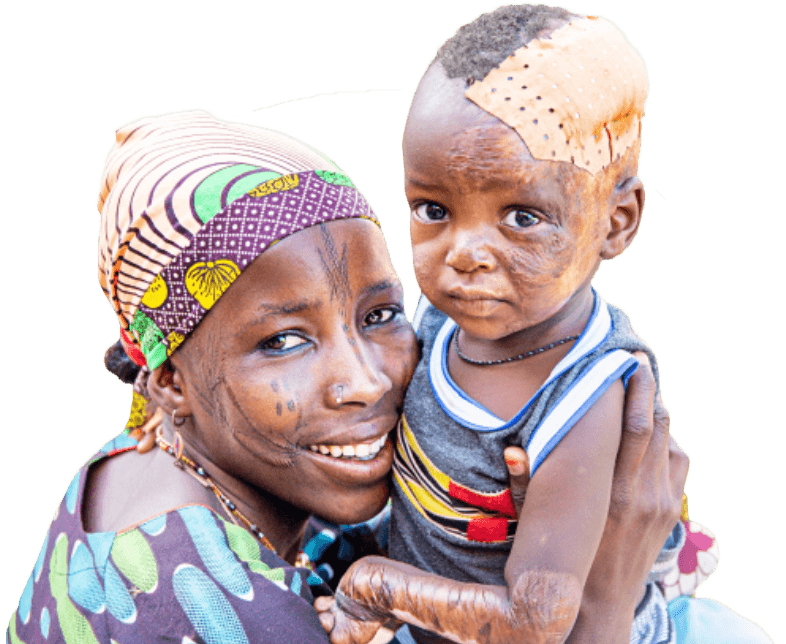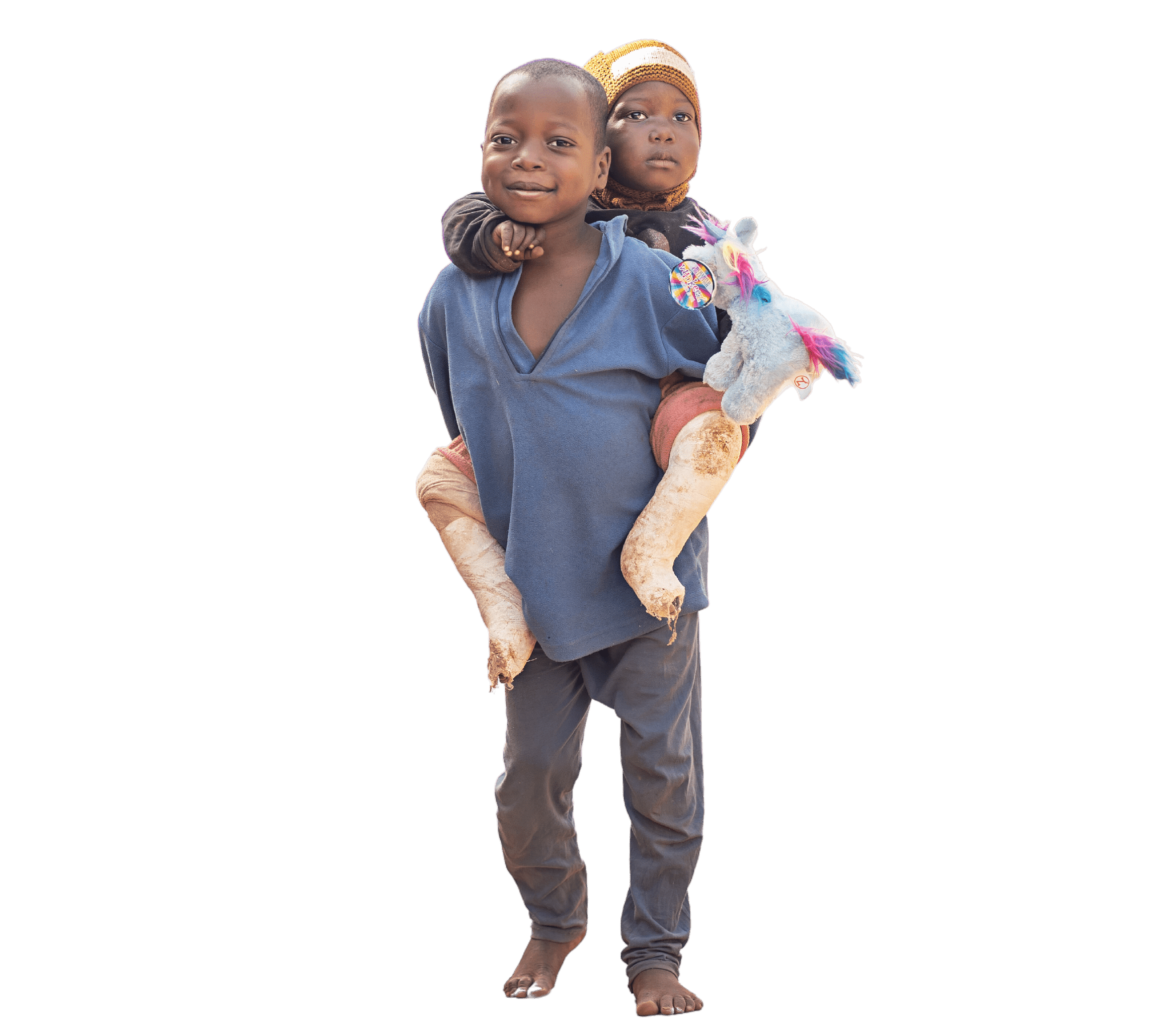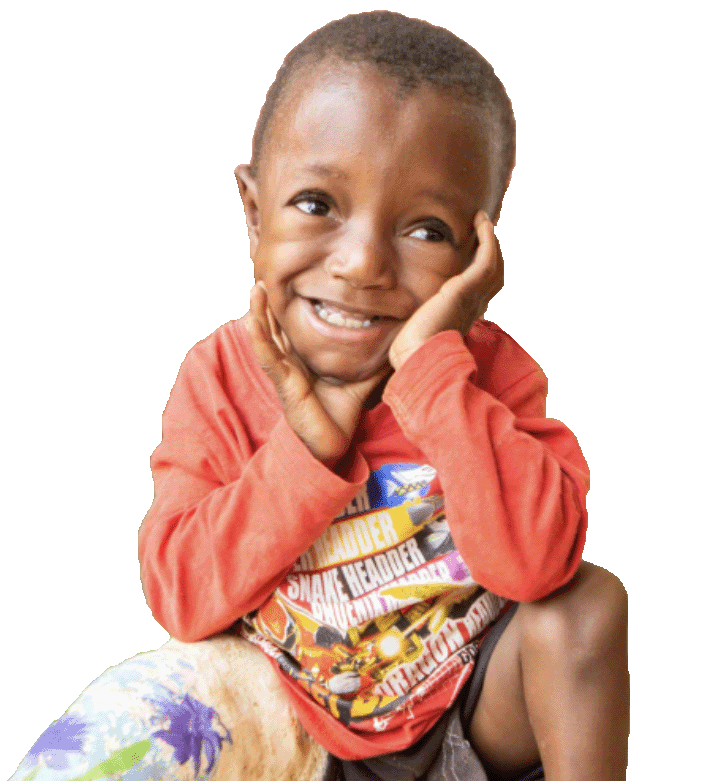Maria entered the world like most other babies – arms and legs crossed over each other and her body curled up in the fetal position. But unlike other babies, Maria didn’t immediately adapt to her new environment. She didn’t kick her legs or wave her arms. Instead, she remained curled in the fetal position, her joints locked up as if she were still in the womb. Seeing her condition, Maria’s father demanded that his wife, Zara, take Maria and leave. He attributed Maria’s condition to a curse and wanted her out of his home. In Niger, a wife has little power, so Zara took her baby to stay with her oldest sister, Walida. For almost two years, Zara kept Maria inside. “I didn’t want to go out,” said Zara. “People will say we are cursed.”
But Maria was not under a curse, she was born with a rare congenital condition known as arthrogryposis that renders joints stiff and contracted and leaves muscles weak. In societies with developed healthcare systems and special needs services, people with this condition have been able to walk, go to school, live without assistance, and get married. With the right treatment administered early, Maria could improve drastically. But, Zara and Walida didn’t know this and felt hopeless.
As time passed, Maria’s joints grew stiffer. At the age of two, she still couldn’t lift her head, and her legs, arms, and hands remained locked inward. She also was falling behind with cognitive and emotional development because she was hidden away from society and interactions with people.
Things would have continued like this if Walida hadn’t taken it upon herself to find a solution. Walida and Zara had a special sibling bond. Their mother died soon after Zara was born, and Walida herself nursed and cared for her younger sister through her infancy. It was almost as if Zara were Walida’s own daughter, and Maria her own granddaughter. So, when the national hospital in Zinder pointed them towards CURE Niger, Walida immediately made plans to take her sister and niece there.
People in their village discouraged them from making the trip. “Allah created [Maria] this way,” they said. “It’s his will. What can man do to change it?” Even though they were not well supported, they refused to be hindered. Soon, they made the 15+ hour trip to CURE Niger where Maria was quickly diagnosed. “Since Maria came to us quite young, and because the tissue in her joints is still soft, we have been able to treat her through extensive physical therapy and casting, rather than surgery,” explained Dr. Karim.
Maria, Zara, and Walida took their place with a group of long term patients and caregivers at our guesthouse, and things began to improve for all of them. When Zara first came, she was weak, barely able to stand up or take care of her daughter. “We all talked with her, tried to encourage her,” said Salamatou from the CURE Niger spiritual team, “But, she didn’t have the will even to feed herself. She was very discouraged about life.”

As Zara spent time with other families dealing with disabilities, she felt less alone. “In the village, I thought I was the only one with a child like this,” said Zara. “But here I see there are others.” Zara began to eat again and got healthier.
Maria began to change too. The CURE Niger physical therapy team helped straighten her hands, her elbows, and her legs. By the end of her treatment, she could finally lift her head! “The type of treatment Maria needed is available here, but probably nowhere else in Niger,” said Sodogos, our physical therapist. “It’s really amazing how much she’s changed.” Her cognitive development also improved. “We all paid special attention to her, everyone from the spiritual team,” said Salamatou. “By the end of her time here, if you said ‘Maria, let’s dance,’ she’d start shaking her body and smiling.”

After three months here, it was time for the trio to make the trip home. “Maria’s made good progress,” said Dr. Karim. “And as long as she keeps wearing the braces we made, she should continue to improve. Plus, we’re always just a phone call away.”
And it’s true! Walida called Salamatou from our spiritual team soon after they arrived back in their village. “Everyone is saying how much different Maria is,” she said. And, Zara’s husband was there waiting at the door to welcome the group, asking to bring his wife and daughter back home.
About the CURE Children’s Hospital of Niger
CURE Niger has been a place of hope since opening its doors in 2010. Ours is the first and only hospital in the country to provide Christ-centered care and charitable surgeries for children with treatable disabilities. Our teaching hospital has 58 beds, two operating rooms, and an outpatient clinic. In addition to world-class medical care, our team ministers to the emotional and spiritual needs of our patients and their communities.


